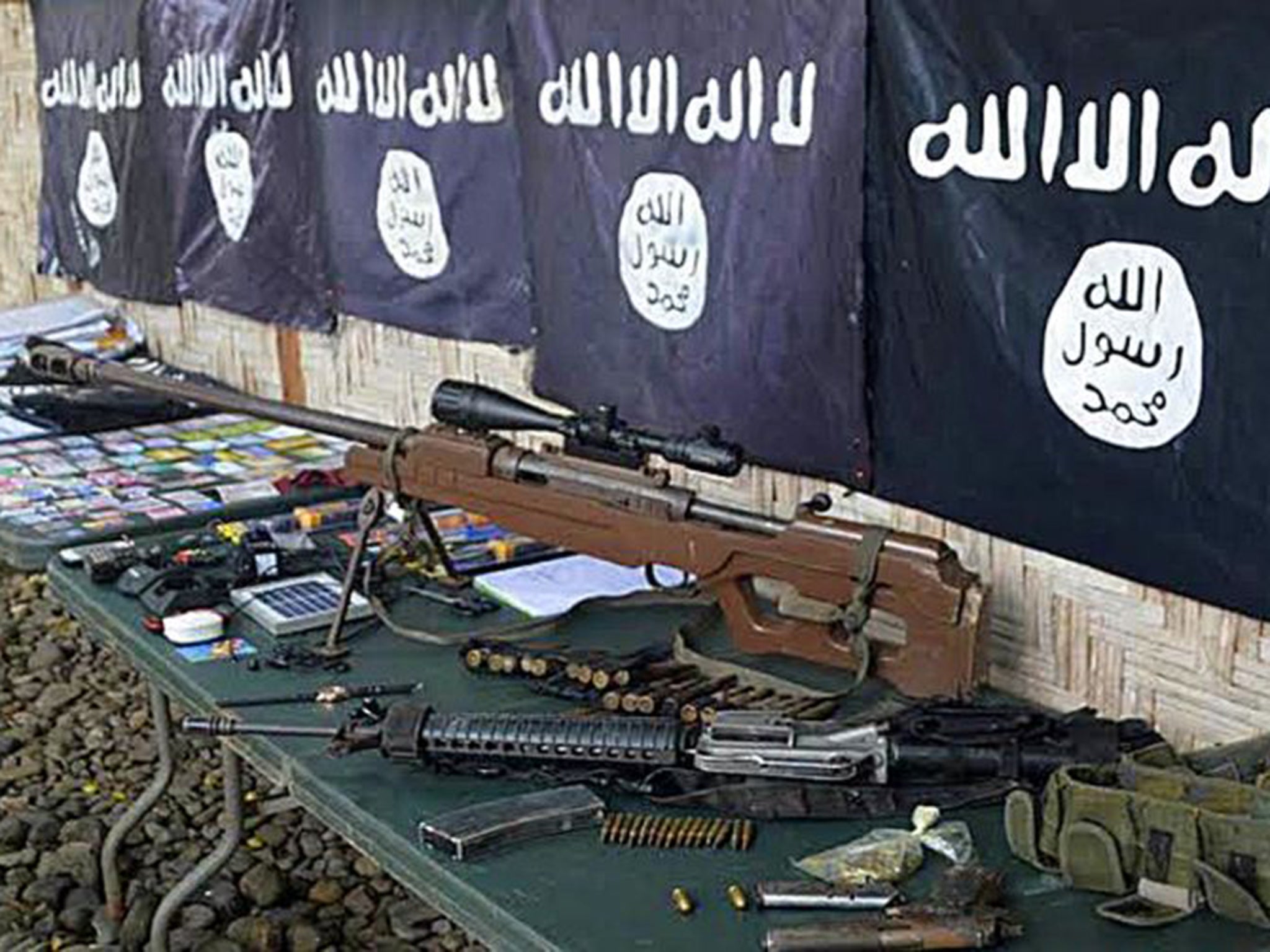Isis is armed to the teeth - and it's all our fault
Isis has an arsenal of weapons manufactured, designed or supplied by the very countries they are at war with

The problem with weapons is they might just end up where you didn’t anticipate. They might even end up in the hands of your enemies.
It’s no secret that Isis has a penchant for heavy weaponry. Like any self-respecting barbaric death cult they aren’t that picky when it comes to firepower. Indeed, they’ve built up a chilling arsenal of weapons including sniper rifles, Kalashnikovs, machine guns, guided anti-tank missiles and surface-to-air missiles and armoured fighting vehicles.
In a perverse irony, Amnesty International's new reporr ‘Taking Stock: The arming of Islamic State’ has found that many of the countries currently engaged in military action against Isis were inadvertently responsible for arming them.
Isis has managed to amass more than 100 types of weapons from over 25 countries in Iraq. The report is a cautionary totem of how the world should not go about arms transfers.
Decades of free-flowing arms into Iraq meant that when Isis took control of the areas it currently holds, they were free to gorge themselves like children in a sweetshop. The weapons they now use were mainly looted from Iraqi military stocks, which were manufactured, designed or supplied by countries including the UK, Russia, China, the USA, Germany and France.
The Iraqi army’s stockpile swelled around the Iran-Iraq war in the ‘80s. This was a seminal moment in the development of the modern global arms market, when at least 34 different countries supplied Iraq with weapons – 28 of those same states were also simultaneously supplying arms to Iran. After Iraq invaded Kuwait in 1990, a UN arms embargo decreased imports until 2003. However, during and after the US-led invasion, Iraq was again flooded with weapons imports. Those weapons weren’t properly audited by the US-led coalition forces and hundreds of thousands went missing.
More recent efforts to re-equip the Iraqi army resulted in a massive arms flow into Iraq. Between 2011 and 2013, the USA signed billions of dollars’ worth of contracts for tanks, F16 fighter aircraft, Stinger shoulder held units and Hawk anti-aircraft batteries. By 2014, the USA had delivered more than 500 million dollars’ worth of small arms and ammunition to the Iraqi government.
This was a horror show waiting to happen, and it should give us pause over current arms deals we are engaged in. Not least the UK’s ongoing deals with Saudi Arabia which Amnesty has repeatedly warned risk being used to commit violations of international law in Yemen and should be immediately stopped. The global ‘Arms Trade Treaty’ which came into force almost exactly one year ago, was intended to be pre-emptive in the analysis of the atrocities we are seeing these arms being used to commit today. The UK was one of the key supporters of the treaty, and they should now lead by example as to how it should be implemented. At some point someone needs to hit the off switch on this conveyer belt of supply, abuse and retaliation.
Oliver Sprague is Amnesty International UK’s Arms Programme Director
Join our commenting forum
Join thought-provoking conversations, follow other Independent readers and see their replies
Comments
Bookmark popover
Removed from bookmarks